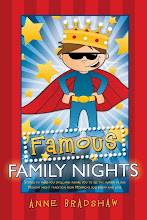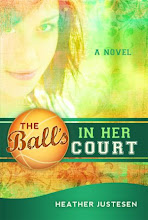by Rachael Renee Anderson So a friend asked me to take a look at her manuscript. Aside from correcting a few minor grammatical errors, I also reworded things, crossed out sentences or paragraphs I felt were unnecessary, and even added phrases. I felt like I was helping to improve her work, make it better, or simply show her what I would do.
So a friend asked me to take a look at her manuscript. Aside from correcting a few minor grammatical errors, I also reworded things, crossed out sentences or paragraphs I felt were unnecessary, and even added phrases. I felt like I was helping to improve her work, make it better, or simply show her what I would do.
Then, as fate would have it, a discussion on the ANWA critique boards caught my attention. It concerned the word “was” and the general consensus seemed to be that most writers considered it somewhat of an evil word—or at least far too passive to be used overly much. Considering the first sentence of my current WIP is: “He was a baby,” I took an interest in the discussion, even submitting my sentence as a “How would you change this?” example.
One author wrote me back, asking for more information, and eventually came back with a “I would write it like this” suggestion. Now, to some people, her suggestion might have been a good one, but for me, it was a no-go. It sounded much too dramatic and rather silly for my tastes.
It was then that I came to the shameful realization that I had gone about critiquing my friend’s manuscript the wrong way. I was trying to change her “voice” to match mine, and how pompous was that? Each book/author is unique because of their voice, and I was trying to take that away from my friend’s work.
So the next time she asked me to take a look at a few chapters (can you believe she asked me again?), I changed the way I “critiqued.” I tried to take a “reader’s” perspective, rather than a “writer’s.” Instead of making changes to her book, I would write, “this sentence doesn’t flow well for me,” or “I’m still confused here,” or “Love this! Now you’ve made me wonder about . . .”
That way, she could analyze her manuscript from a fresh perspective—what someone might think having never read her book before or know anything about her story. It allowed her to fix troubled spots in her own way—not my way. It enabled her to retain her voice.
So my shout-out to all writers is this: Amplify that voice of yours, make it the best you possibly can, and don’t ever listen to anyone who wants to change it. No one can do it justice the way you can. After all, isn’t that what makes books so amazing? Not one of them are alike—thanks to the unique voice of each and every author.
Monday, May 3, 2010
Funny thing about humility. Just when you think you've got it, you've lost it . . .
Posted by Rachael Anderson at 8:48 AM
Labels: Rachael Renee Anderson
Subscribe to:
Post Comments (Atom)

















1 comments:
That is what i love about the book Marked by P.C. Cast and Kristen Cast it has a great voice!
Post a Comment